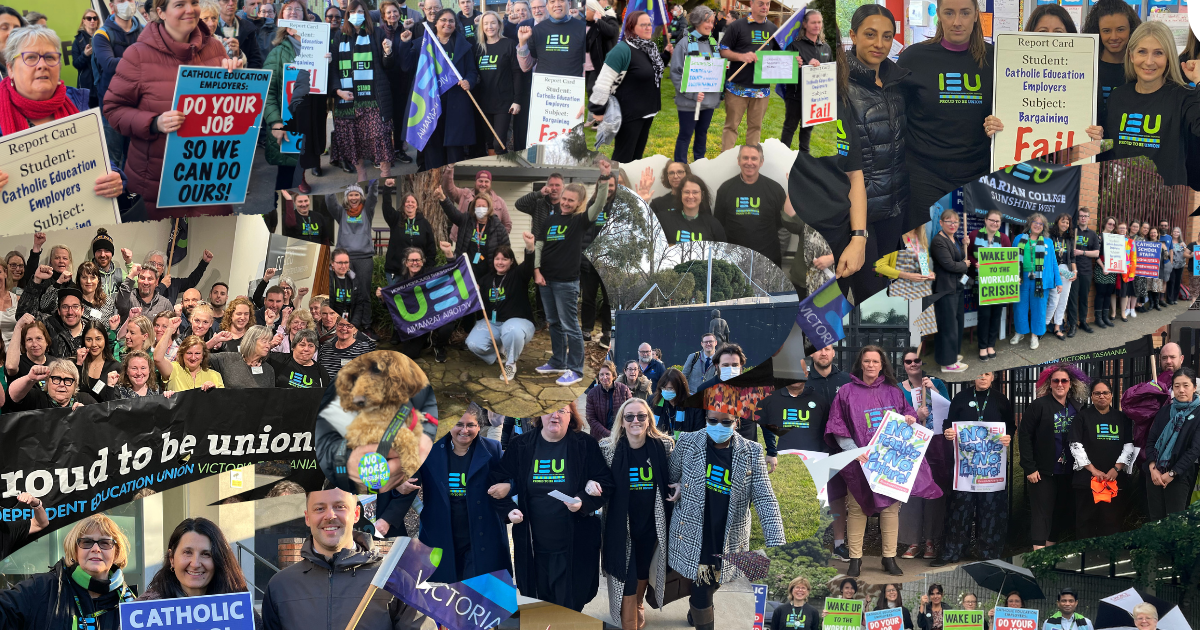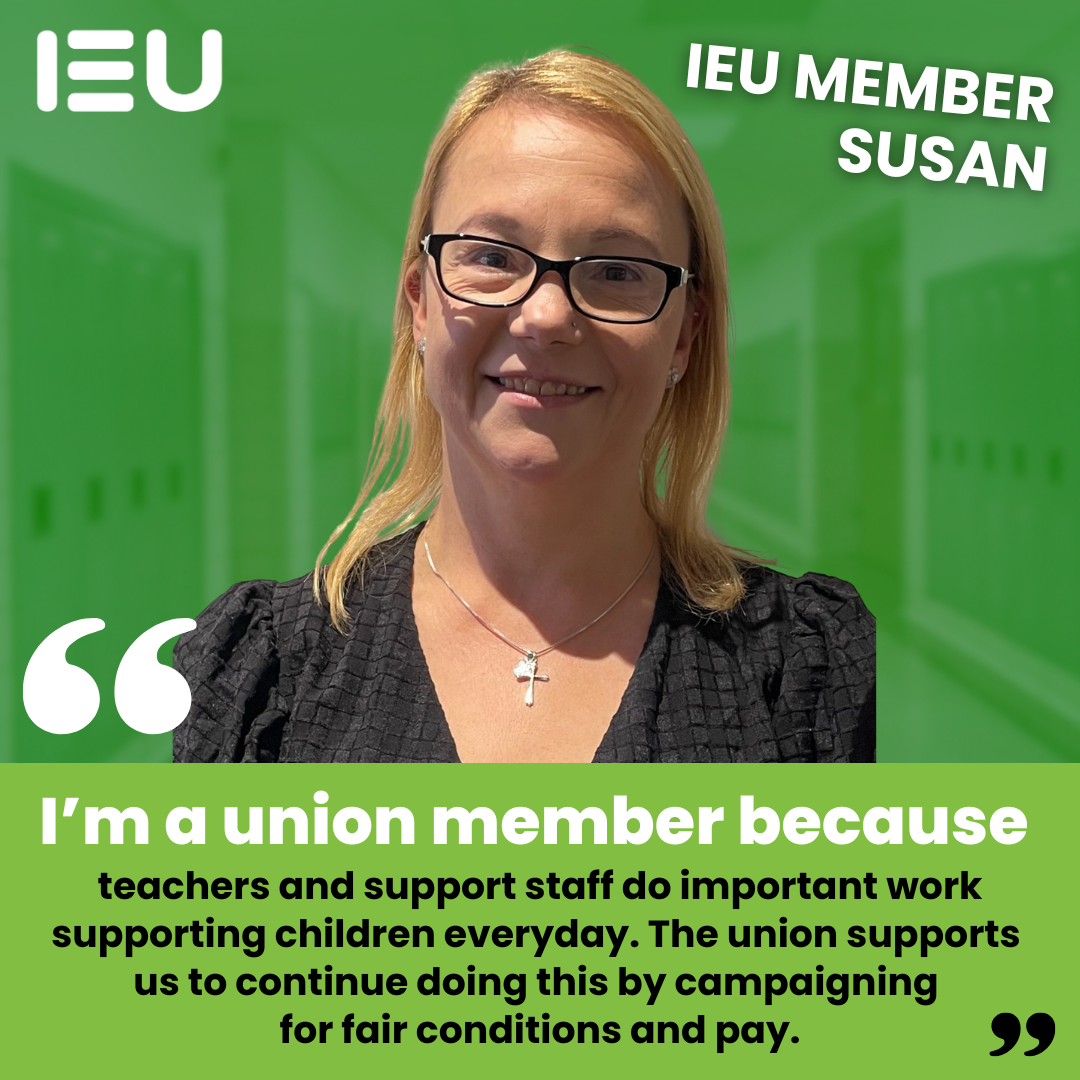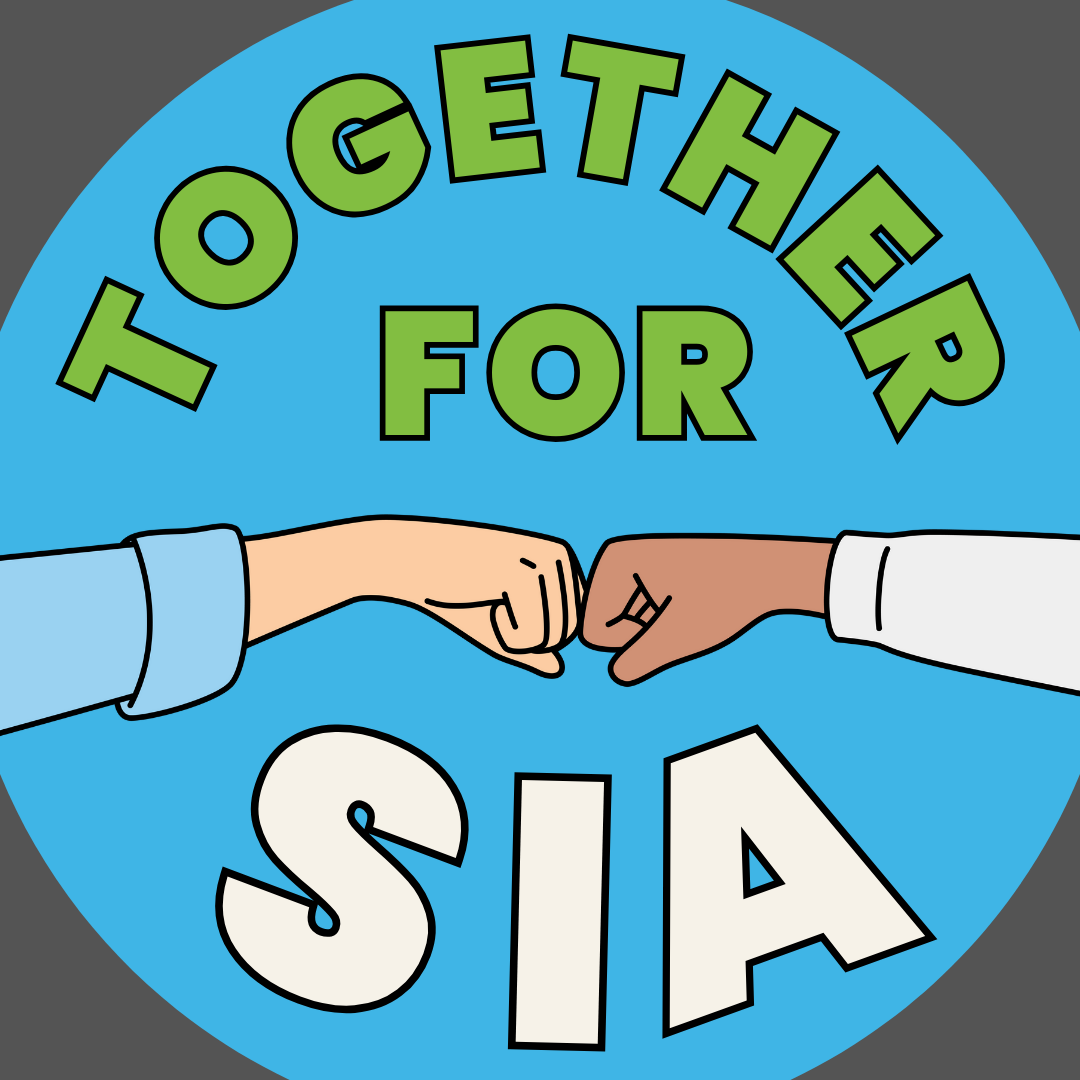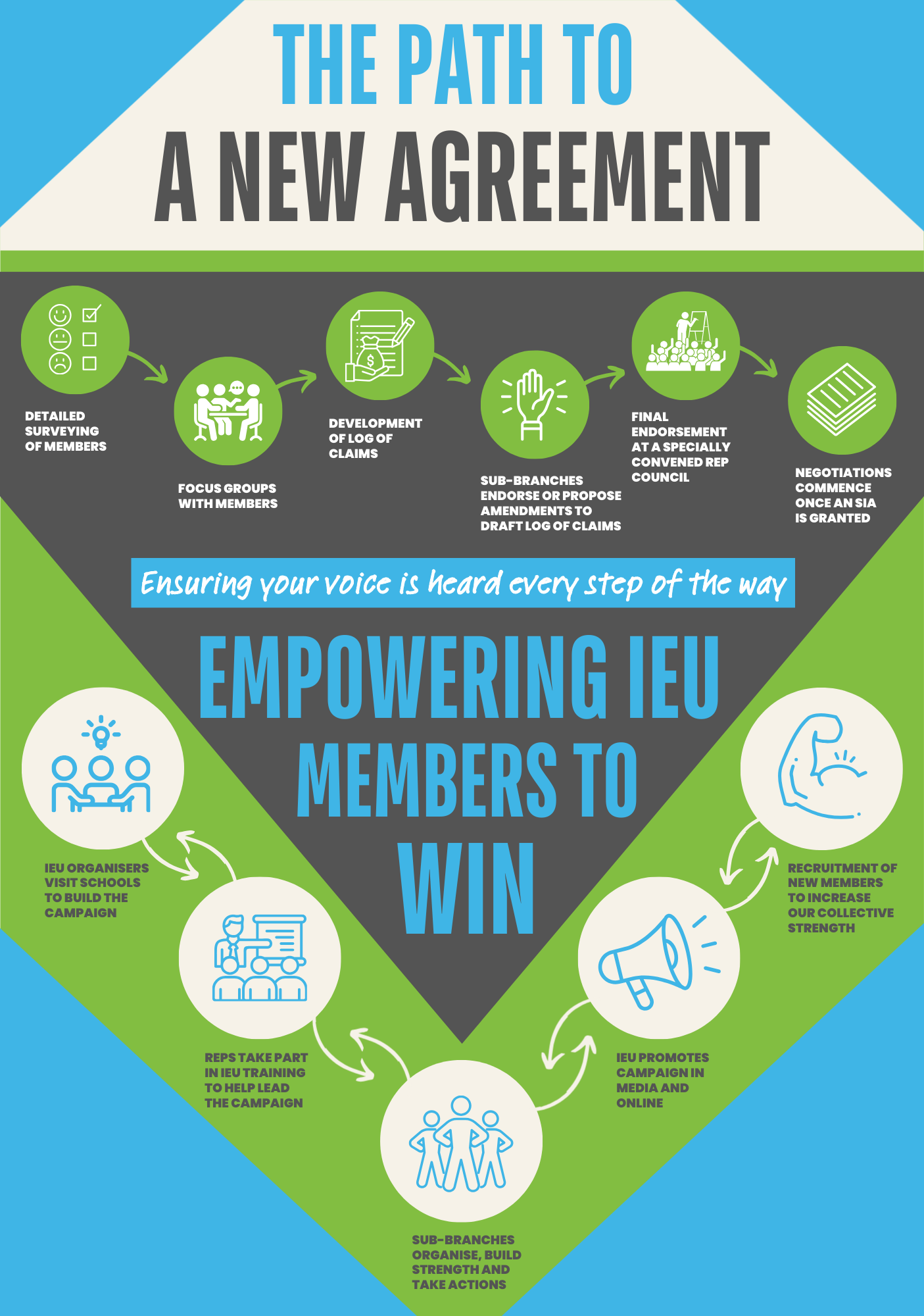
IEU members are campaigning for a new Agreement that protects and improves pay and conditions in Victorian Catholic education.
Together, we can win the significant salary increases that members deserve. We can continue to tackle workload issues, and we can improve our conditions and entitlements, making our schools better places to work and better places to learn.
In early September, Reps from across Victorian Catholic education met at a special Victorian Catholic Council to consider, amend and endorse the IEU’s Log of Claims.
This followed detailed member consultation early in the year, which guided the development of a Draft Log of Claims. This was circulated to sub-branches for amendment or endorsement in July. Over 200 sub-branches endorsed the draft document, while dozens more proposed thoughtful amendments which were collated for consideration at Council.
The final Log of Claims has been split in two - a 101-point Log covering salaries and conditions for members in workplace-based Sub-branches, and an additional 12-point Log covering conditions for Primary Principals, which was separately endorsed by the Principal sub-branch. .
Now that we have an endorsed Log of Claims, the IEU is ready to commence good-faith bargaining for a new Agreement as soon as a Single Interest Authorisation is in place.
If employers agree to negotiate as a single interest, bargaining could commence now - if they do not, we will be forced to wait until we can make our own Single Interest Authorisation in January 2026.
Read more about the importance of Single Interest bargaining here.
Victorian Catholic Agreement Log of Claims - finalised and endorsed!
Campaign timeline
-
IEU sub-branches will prepare for the campaign, discuss our bargaining priorities, build momentum and invite non-members to get on board.
Detailed surveying of members and focused discussion groups will guide the development of the draft IEU Log of Claims.
-
The IEU negotiating team will develop a draft Log of Claims, based on member input, improvements won by education unions around the country, and key issues that have arisen during the implementation of the current Agreement.
IEU Organisers will work with Reps and members in workplaces to build our collective strength.
-
IEU sub-branches will review our draft Log of Claims, and will have the opportunity to propose and debate amendments in advance of final endorsement.
If employers agree to negotiate as a Single Interest, The IEU will table the endorsed Log of Claims to and seek to commence negotiations.
-
If employers are prepared to negotiate as a Single Interest, IEU negotiators will be hard at work at the bargaining table, backed up by the campaigning actions and collective strength of members across Victoria.
If employers continue to refuse to grant basic bargaining rights to their staff , our focus will need to be on preparing to prove to the Fair Work Commission that a majority of staff wish to negotiate under a Single Interest Authorisation.
-
Salaries, conditions and protections remain in place until a new Agreement is finalised.
-
If resolution has not been reached, we will ramp up our campaign for a fair outcome which improves and protects salaries and conditions in Victorian Catholic education.
IEU member wins
IEU members have a proud history of standing together and winning significant improvements to the pay and conditions of all staff working in Victorian Catholic schools. Here are just some of the highlights from three decades of campaigning:
1997: Pay parity with government schools
2004: Paid parental leave (improved in every subsequent Agreement!)
2008: Higher accrual of Long Service Leave and access after 7 years
2013: Huge improvements to ES & SSO classifications and salaries
2018: Teacher salaries hit $100,000
2022: New limits on teacher workload, historic reductions to Scheduled Class Time and the abolition of extras

Stronger together
The more members there are in the IEU, the greater our collective power to win an Agreement that reflects the hard work and commitment of teachers, support staff and school leaders.
So don't watch from the sidelines, get involved! Join your colleagues in the IEU today to have a voice in negotiations, to be protected at work and to grow our collective bargaining strength.































